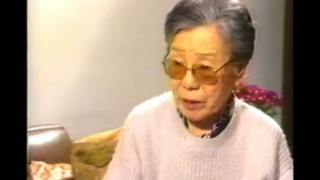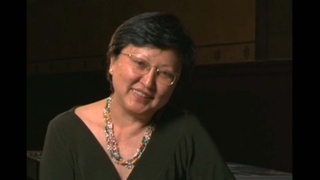Interviews
The reason why the city of Oizumi became “Brazilian town” (Portuguese)
(Portuguese)
I believe it's due to ... well, to that support from city hall. Ya know, for the city. All this support that … Like, they really help out a lot the Brazilians here, so they can ... set up the best Brazilian [establishments] here – the best stores, schools, everything, so with all this going on ... there’s this ease [for Brazilians]. So, with all this is going on, I believe the Brazilians ... they come over here to live permanently because nowadays we’ve got everything here, in the city, know what I mean? ... Especially the school, as so many states [prefectures] don’t have Brazilian schools, so … Those who have a family want – prefer living in Oizumi or in the area, ya know, because ... everything is easier here; you really feel like you’re in a city, and Japan is a safe country and all that, a safe country, ya know ... [And as a result of] all this infrastructure connected by Brazilians, the number of stores has increased a whole lot ... Tourism [has increased as well], like, every month, in the square nearby ... Every month they have … “typical” dishes for foreigners, and that’s interesting, too, and then in ... August – there’s a mardi gras [celebration] in August ... They even close down the street ... They have samba players, everything, ya know? So, all of this has been catching on; I think [it has become popular] at least in ... in Japan, see, because it’s very well known, the city of Oizumi.
Date: October 19, 2016
Location: Gunma, Japan
Interviewer: Shigeru Kojima
Contributed by: Watase Media Arts Center, Japanese American National Museum
Explore More Videos

Reasons for immigrating to Brazil (Japanese)
Issei, Pioneer of women's education in Brazil

Opening a Japanese-style all-girls' school in Brazil (Japanese)
Issei, Pioneer of women's education in Brazil

Brazilian of Japanese descents (Portuguese)
Former Director, Museu Histórico da Imigração Japonesa no Brasil

Japan's impact on the image of Nikkei in Brazil (Portuguese)
Former Director, Museu Histórico da Imigração Japonesa no Brasil

Change in sense of Nikkei Brazilian identity over time (Portuguese)
Former Director, Museu Histórico da Imigração Japonesa no Brasil

Nikkei community concentrated in São Paulo (Portuguese)
Former Director, Museu Histórico da Imigração Japonesa no Brasil

Changing life styles of successive generations (Portuguese)
Former Director, Museu Histórico da Imigração Japonesa no Brasil

Moved to Japan as my dekasegi father called on me (Japanese)
(b. 1979) Sansei Nikkei Brazilian who lives in Oizumi-machi in Gunma prefecture. He runs his own design studio.

Facing hardships in Japan (Japanese)
(b. 1979) Sansei Nikkei Brazilian who lives in Oizumi-machi in Gunma prefecture. He runs his own design studio.

The difference between Nikkei community in Oizumi and Brazil (Japanese)
(b. 1979) Sansei Nikkei Brazilian who lives in Oizumi-machi in Gunma prefecture. He runs his own design studio.

Change in community after the collapse of Lehman Brothers (Japanese)
(b. 1979) Sansei Nikkei Brazilian who lives in Oizumi-machi in Gunma prefecture. He runs his own design studio.

From being a dekasegi to a long-term resident (Japanese)
(b. 1979) Sansei Nikkei Brazilian who lives in Oizumi-machi in Gunma prefecture. He runs his own design studio.

Challenges of Brazilian community in Japan (Japanese)
(b. 1979) Sansei Nikkei Brazilian who lives in Oizumi-machi in Gunma prefecture. He runs his own design studio.

Change of identity (Japanese)
(b. 1979) Sansei Nikkei Brazilian who lives in Oizumi-machi in Gunma prefecture. He runs his own design studio.

The term Nikkei (Japanese)
(b. 1979) Sansei Nikkei Brazilian who lives in Oizumi-machi in Gunma prefecture. He runs his own design studio.
